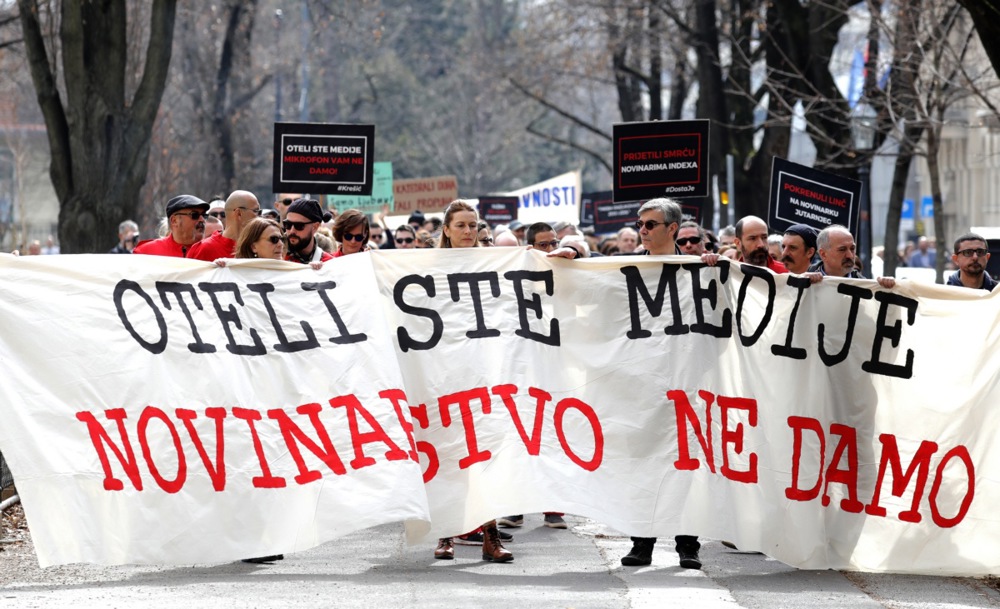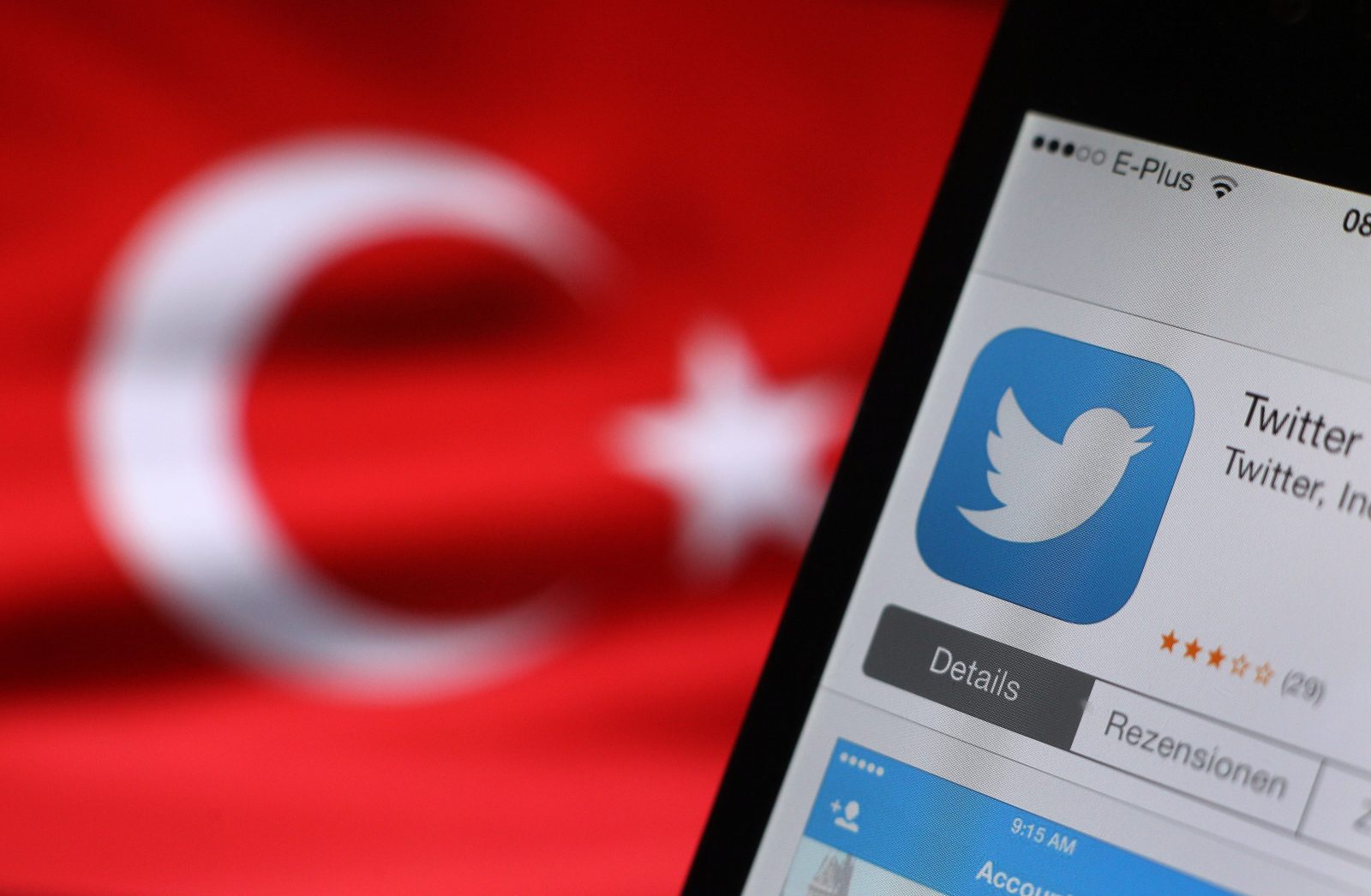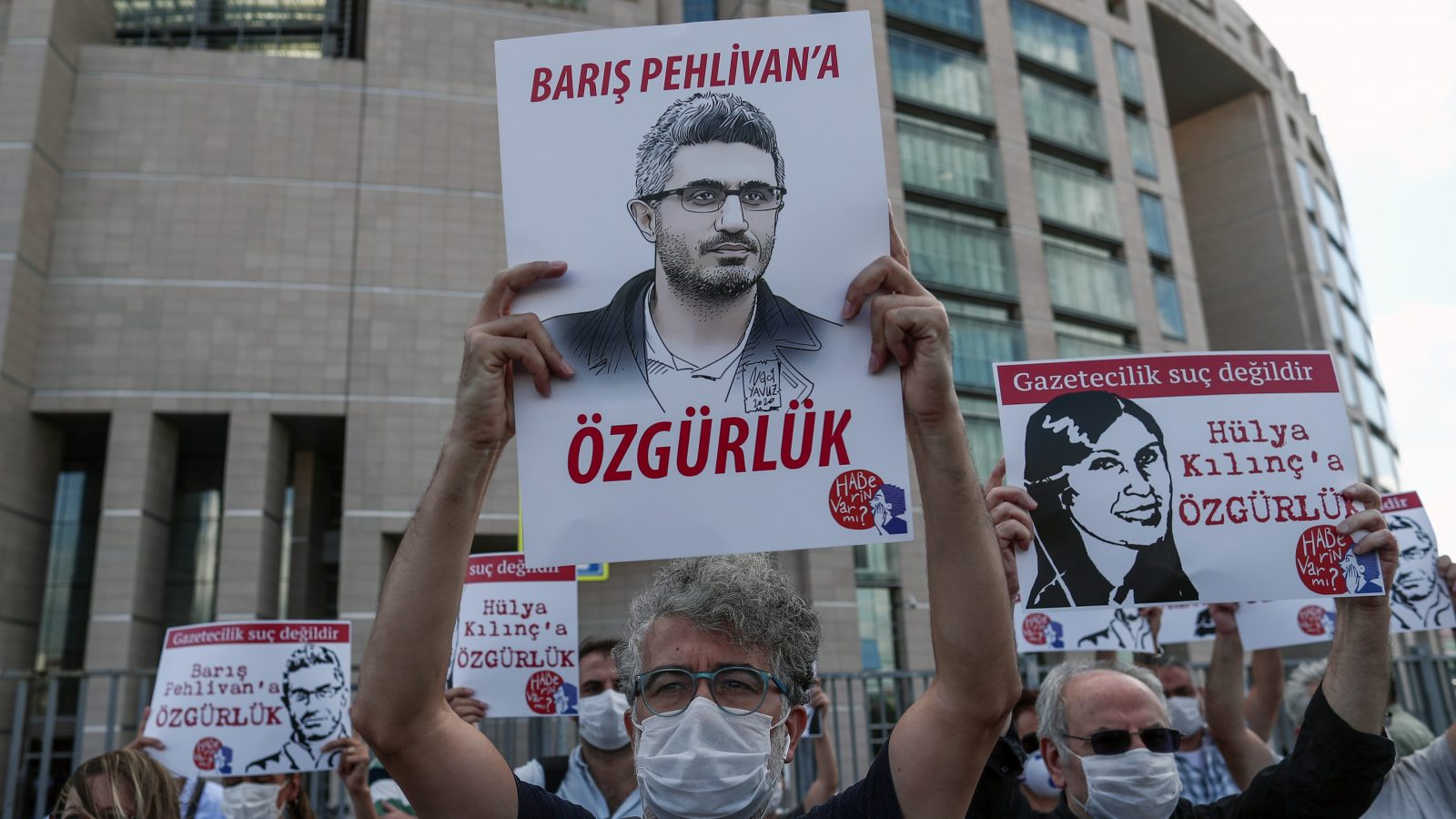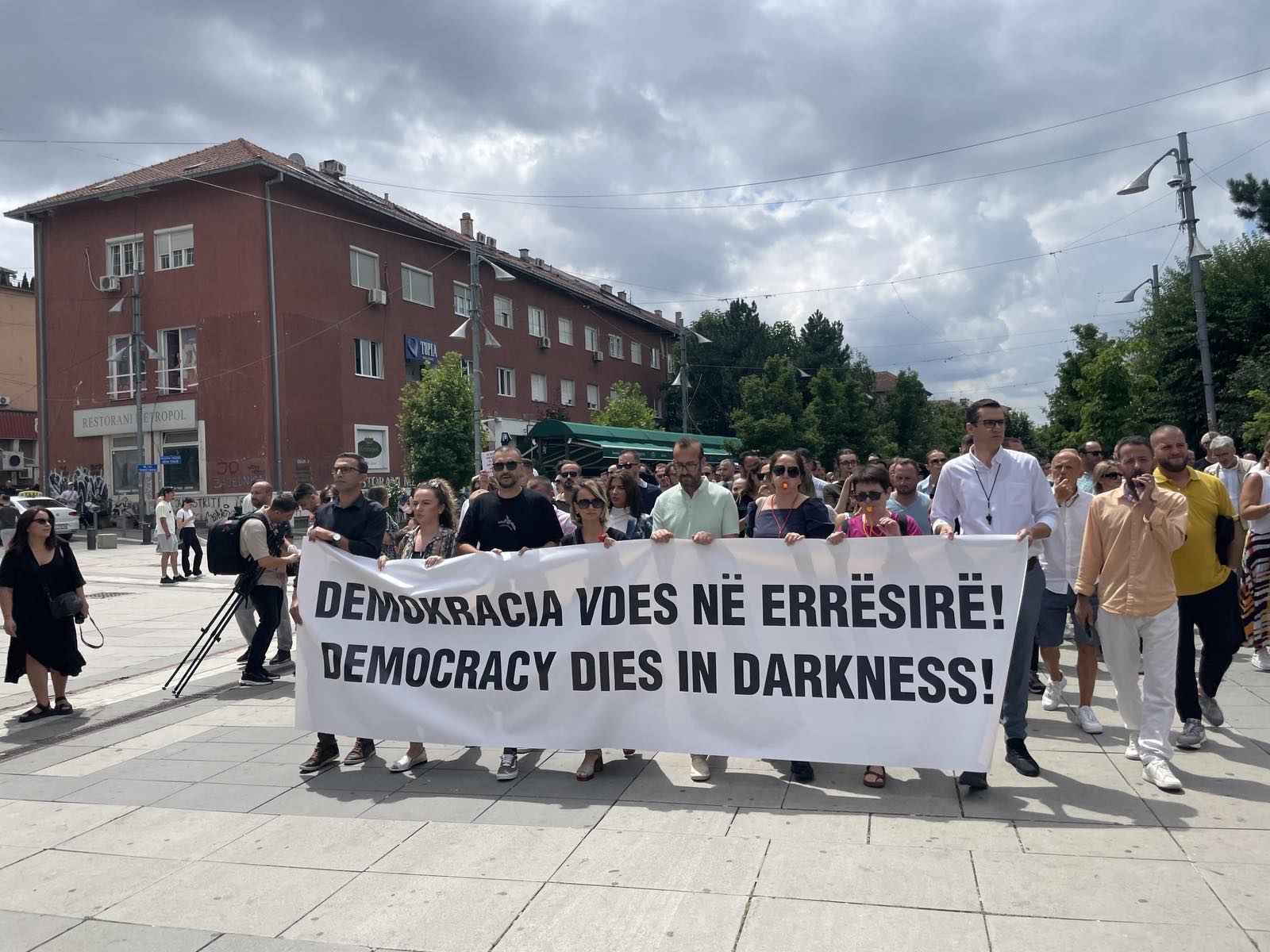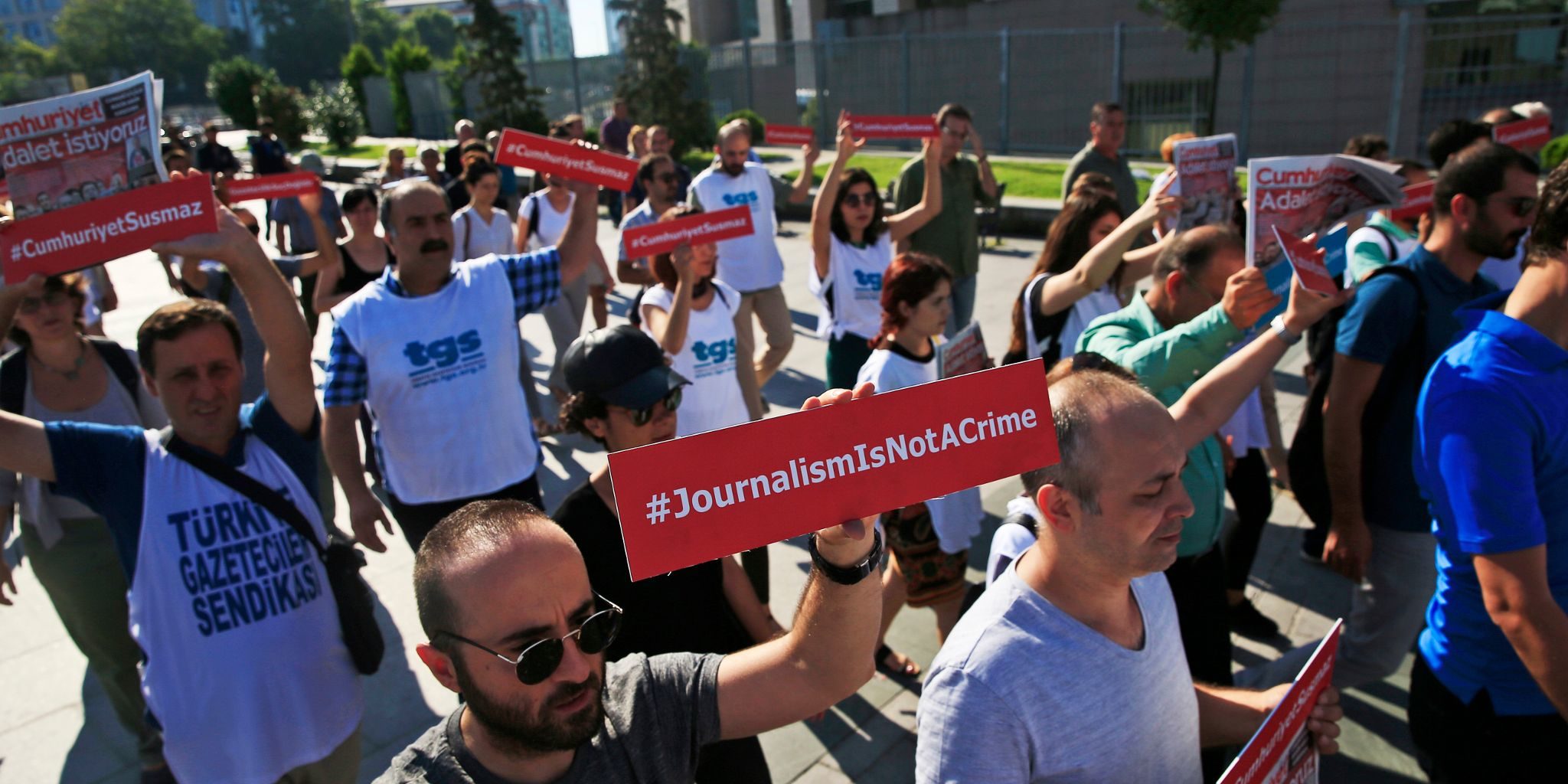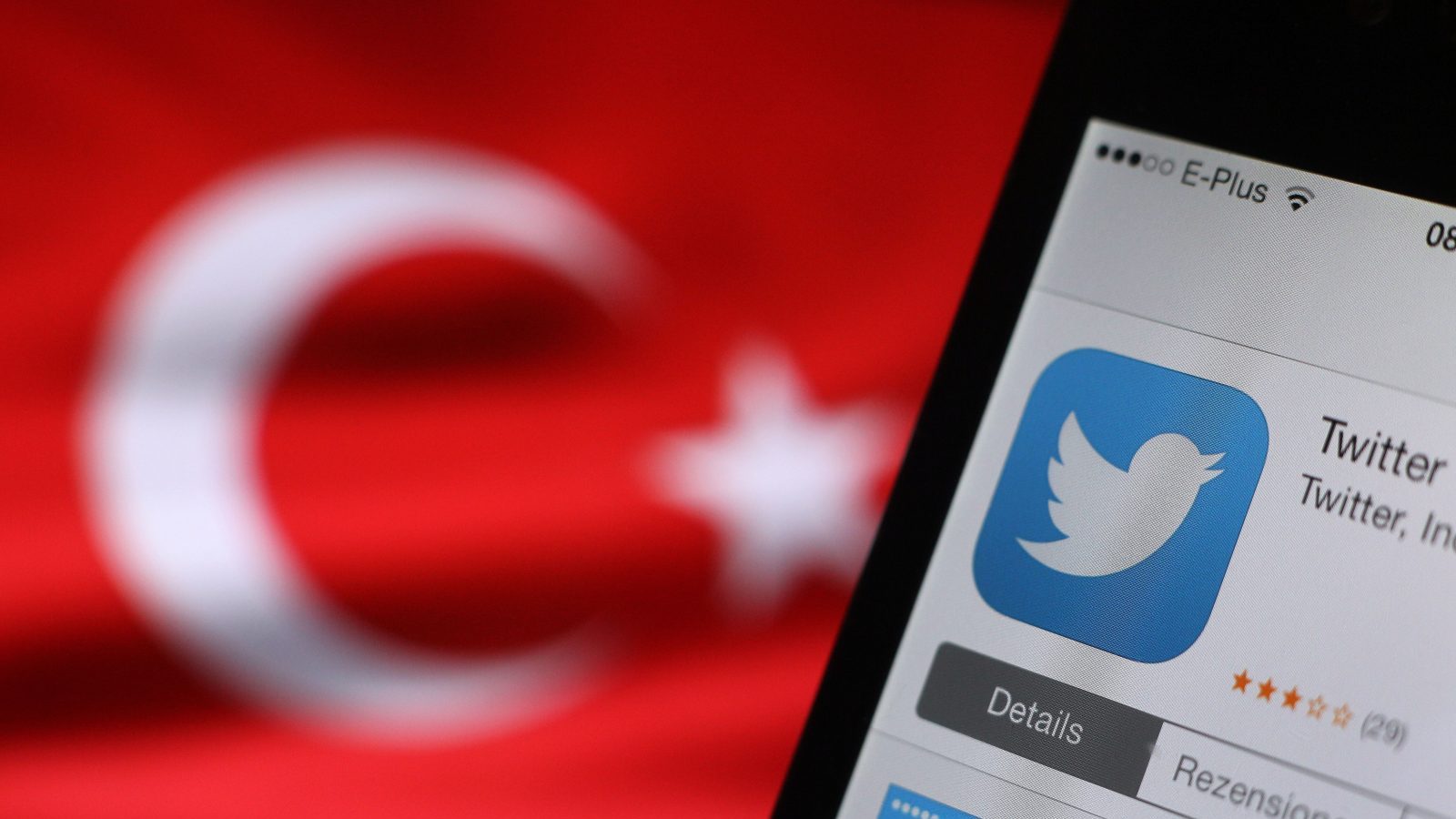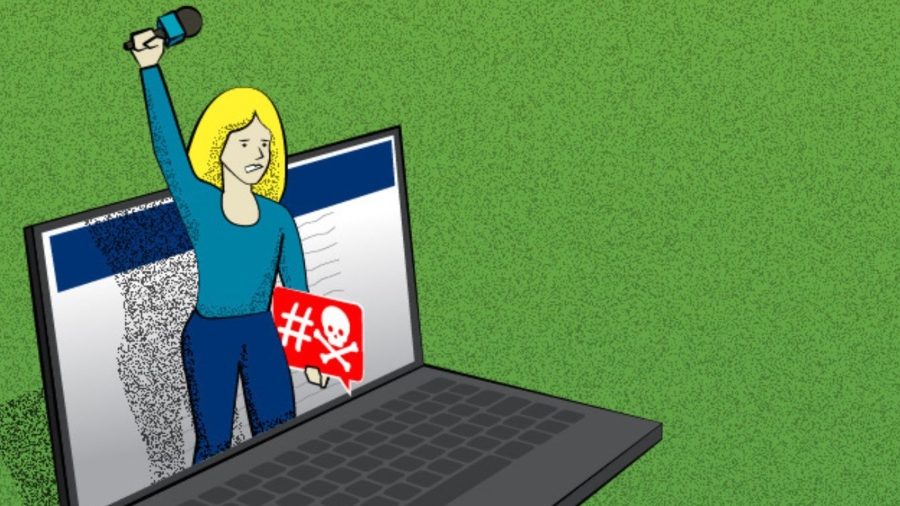In January this year, when media in Croatia got hold of correspondence involving a former cabinet minister caught up in a corruption probe, her mention of a certain “A.P.” quickly set tongues wagging. The prime minister then, as now, was Andrej Plenkovic.
The correspondence was being used as evidence in an investigation launched by the European Public Prosecutor’s Office into the allegedly inflated cost of software ordered in 2019 by then EU Funds and Regional Development Minister Gabriela Zalac.
There was nothing in the reports that incriminated the prime minister, but it proved embarrassing nonetheless – a sense of guilt by association.
Now, his government is poised to criminalise the “unauthorised disclosure of the content of investigative or evidentiary action”, a change to the Criminal Code that the media has dubbed ‘Lex AP.’
The government insists the aim is to support the presumption of innocence, protect the privacy of suspects and ensure the independence of the judiciary. Critics, however, say the real objective is to silence journalists who rely on leaks from police, prosecutors and the courts to report on the misdeeds of politicians and public officials.
“This is an unprecedented attack on the freedom of journalism, on the journalistic profession, on whistleblowers,” said Hrvoje Zovko, head of the Croatian Journalists’ Association, HND, who linked it to parliamentary, presidential and European parliamentary elections due next year and the storm over the Zalac correspondence.
“This will not be passed to criminally prosecute the journalist, but to discredit and contaminate the journalist and to ensure that no potential source dares to dial the journalist’s phone number,” Zovko told BIRN. “This will have catastrophic consequences for the journalistic profession, and the public will be deprived of everything.”
Journalists fear ‘sources will dry up’
 Last week, a round table on the new law was held at the Croatian Journalists’ Association in Zagreb. Photo: SNH
Last week, a round table on the new law was held at the Croatian Journalists’ Association in Zagreb. Photo: SNH
The proposed change to the law – which foresees punishment of up to three years in prison – was submitted to public consultation on September 22, after which the government will likely send it to parliament.
Croatia’s centre-right government, led by Plenkovic’s Croatian Democratic Union, HDZ, has defended the bill, saying it is in no way directed against journalists.
“It only applies to the participants in the [legal] proceedings,” Justice Minister Ivan Malenica said last month. “Through this criminal act, the victim’s right to privacy and the presumption of innocence are protected.”
Croatia, however, has a history of high-level corruption and ranks 57th out of 180 countries on Transparency International’s perception of corruption index. Such a law will hardly contribute to greater public trust in the integrity of public officials, said Zovko.
The law, he said, will render journalism “meaningless” and simply protect “the political elites, regardless of who is in power”.
“We will fight against it, but at the end of the day, if it is passed, it can be used abundantly by whoever is in power.”
HND member and N1 television journalist Ana Raic warned that “sources will dry up”.
“I hope that there will still be enough brave people who will still want to expose corruption or say that this investigation is taking too long,” Raic told a news conference in October.
Investigative journalists, in particular, face being plunged into “the blackest darkness”, she said, as they try to follow criminal cases and expose wrongdoing.
Criminal offence ‘unnecessary and harmful’
 The round table on the new law was attended by a couple of former ministers and several prominent intellectuals. Photo: SNH
The round table on the new law was attended by a couple of former ministers and several prominent intellectuals. Photo: SNH
While conceding the right and the obligation of the state to prevent the disclosure of information from certain stages of criminal proceedings, lawyer Vesna Alaburic, who frequently defends journalists taken to court over their reporting, said the introduction of such a criminal offence “is unnecessary and harmful”.
“The proposed solution sanctions the disclosure of content of every evidentiary act, regardless of whether that content is at all important for a specific criminal proceeding or perhaps it is about content for which there is a predominant interest of the public,” said Alaburic, noting that Croatian law already allows certain information to be declared secret and any disclosure of such information is considered a crime.
“That’s why I don’t consider it justified that the new criminal offence indiscriminately, without valid justification, prohibits the disclosure of the content of absolutely every evidentiary action,” she told BIRN.
“The public would be denied the exercise of its legitimate ‘right to know’ because even journalists would not be able to convey to the public all the contents of the predominant public interest.”
Alaburic said she did not believe journalists risk prosecution, given the law applies only to the participants in criminal proceedings, but may come under pressure to reveal the sources of their information.
Political reaction to the government’s plans has been muted. One of the few to speak out was MP Damir Bajs of Fokus party.
“With the introduction of a new criminal offence, we will have two Croatias,” he said. “One before and one after the introduction of that criminal act.”
“We will only talk about good things, and it will not be possible to spoil the mood of the government and the prime minister or anyone in power,” Bajs said.
“There is only one question –in whichCroatia do we want to live? In a country where the government can say what it wants, but nothing can be published about them?”
